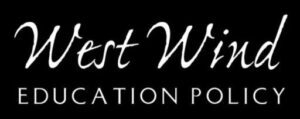White Privilege Conference 2010
On April 7-11 the eleventh annual White Privilege Conference (WPC 11) was held in LaCrosse, Wisconsin. I had my first opportunity to join with over 1700 people from across the nation and participate in a learning community in which participants engaged in a challenging educational experience to understand whiteness, privilege, power and oppression. As the organizers clearly pointed out, each participant comes to the WPC in a different place with regard to their journey toward this understanding and each participant is asked to share responsibility for holding one another accountable to allow for a shared experience that fosters the opportunity for understanding, respecting and connecting. With some 140 workshops and Institutes lead by some of the nation’s premier scholars, researchers, teachers and advocates, 15 film screenings by outstanding film makers and 5 keynote addresses, this was the most comprehensive professional development experience and celebration of its kind.
West Wind had the honor of presenting our workshop, “Us” and “Not Us”: “Othering” in Education Policy and Practices, twice during the 4-day event. Along with the close to 50 workshop participants, we set out to establish through examining language, text, images and lived experiences in historical and contemporary contexts, that “othering” is and has been central to the domination and oppression of people of color in the United States. The process of establishing whiteness as normal and non-whiteness as deviant is essential and endemic to those systems (financial, legal, educational, political and social) structured to establish and sustain the nation’s way of life and is one way in which we perpetuate systemic racism. We investigated how educational policy and practice work to establish whiteness as the norm and positions students of color in homogenous groups hindered by deviation from that norm, “othering” students of color, and collaborated with participants to reveal forms of “othering” and ways to work against extending this practice.
Also embedded within and conducted throughout the conference was year three of the WPC Youth Leadership Conference, which paired youth participants and adult facilitators in an innovative program to explore the issues of oppression and white privilege. The creative format, using best practices in youth engagement, featured interactive dialogue techniques from theater of the oppressed, sacred talking circles, open space caucuses and affinity groups. The ideas and understandings born of these interactions were then shared with the adult conference using a range of performing arts based methods. I am continually amazed at how resonant the issues power, oppression and privilege are with our youth and their ability to make meaning of the presence and impact of these forces in their everyday lived experiences in transformative ways.
Congratulations and thank you to the remarkable groups of people who organized, supported and made WPC 11 possible! We look forward to continuing to be a part of this community of thinkers, learners and doers with indomitable wills to recognize, understand and call out white privilege for the continued establishment of the beloved community.

